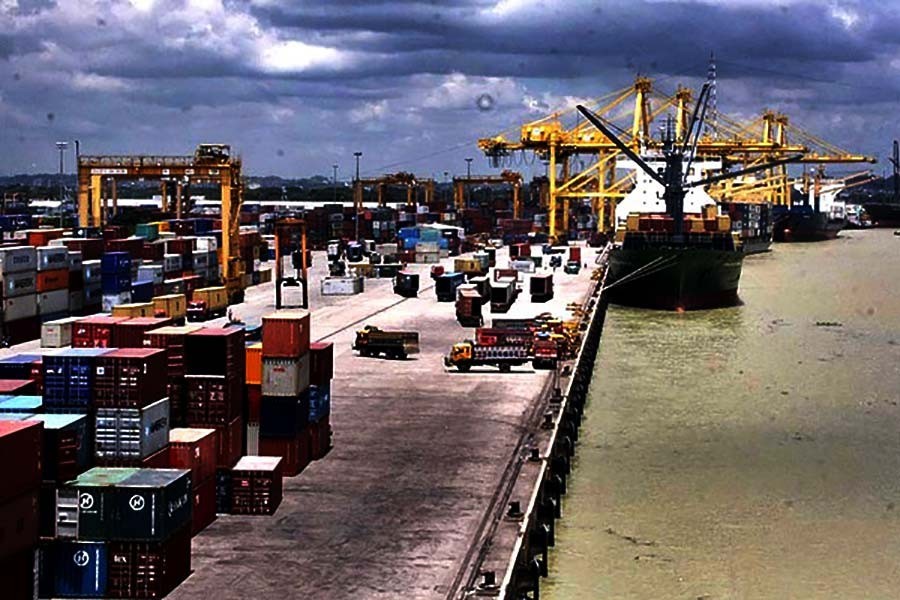The customs have been asked to bring down physical inspection of imported containers to below 5.0 per cent to expedite delivery, officials said.
Customs officials now physically verify 12 per cent to 15 per cent containers at Chattogram port.
Apart from Chattogram Customs House officials, customs intelligence wing also verifies containers in case of an odour of suspicion.
In many cases, port officials said, one container is checked several times for lack of coordination among customs departments.
As a result, containers remain at port yard for days and weeks occupying space, they said.
Sources said an inter-ministerial meeting at shipping ministry recently decided to cut physical verification of containers to below 5.0 per cent.
The meeting said this will help expedite container delivery, reduce congestion at port yard and optimise use of yard space, equipment and manpower.
Zafar Alam, member of Chattogram Port Authority, earlier told the FE that there is no alternative but to reduce congestion at port yard.
He suggested sending out containers soon after unloading them from vessels.
"Sometimes stored containers go beyond the port yard's storage capacity. Equipment can't move smoothly, thus hindering container handling," Mr Alam mentioned.
He said keeping containers for long time at the yard in the name of physical verification cannot continue anymore.
The port's container handling is growing fast every year, but its storage capacity is not rising accordingly, Mr Alam argued.
"It has virtually turned into a delivery port. There is no other port in Asia from where cargos are delivered after opening them at port yard."
When contacted on Monday, Chattogram customs house commissioner Dr AKM Nuruzzaman said they are trying to reduce physical verification of containers.
Reducing physical inspection of containers to below 5.0 per cent is not possible right now, he added.
"We identify so many irregularities during scrutiny. If we reduce inspection to this level, revenue will go down drastically," Mr Nuruzzaman told the FE.
He said irregularities are detected in some 20 per cent of the total containers the customs department physically inspects.
The country's prime seaport handles around 2.56 million twenty foot equivalent unit (TEUs) of containers per year.
It sees around 10 per cent growth annually.


